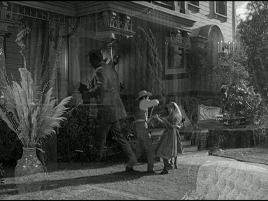Happening or likely to happen in an unplanned or subordinate conjunction with something else. Incurred casually and in addition to the regular or main amount: incidental expenses. Likely to happen or naturally appertaining (usually followed by to). Directed by John Meredyth Lucas. With William Shatner, Leonard Nimoy, DeForest Kelley, Joanne Linville. An apparently insane Capt. Kirk has the Enterprise deliberately enter the Romulan Neutral Zone where the ship is immediately captured by the enemy.
Information and translations of incident in the most comprehensive dictionary definitions resource on the web. Occasional, casual.—adv. 12 hours ago Cloudy and windy with occasional snow continuing. Remaining breezy. Updated: February 1, 2021 @ 2:15 am. BODY CAM RELEASED OF RPD INCIDENT WITH MINOR Feb 1, 2021 Feb 1, 2021 Updated 54 min ago.

On Sunday night, the city of Las Vegas was left horrified by one of the worst mass shootings in history: A heavily armed gunman killed at least 59 people, and injured at least 500 others. The violence has set off another round of a very familiar conversation about acts of mass violence, guns, and gun control laws. The National Rifle Association, however, has long argued that more people owning guns would make for a safer world. So, the question: do 'good gun owners' ever stop deadly shootings? And if so, could such a gun-carrying citizen have intervened in the Las Vegas massacre?
The answer to the first question ― whether citizens, rather than police officers or other members of law enforcement, have ever saved lives from shooters by carrying guns ― is yes. There are true stories, backed by journalistic reporting, of everyday gun owners intervening in deadly crimes to positive impact.
If you dig into some of the prominent examples of 'good guy' gun owners intervening in deadly attacks, however, there are some common themes that make it seem profoundly unlikely more guns would've helped the sort of incident that unfolded in Las Vegas.
For example, back in 2015, Eugene Volokh detailed ten such incidents for The Washington Post, eight of which involved gun owners with no reported experience in the military or in law enforcement. Needless to say, gun ownership advocacy and lobbying groups ―most prominently the NRA ― are keen to publicize these stories.
For instance, the case of William Allabaugh, who pleaded guilty to murder after fatally shooting two people at a bar in Plymouth, Pennsylvania in 2013. Allabaugh had already killed two people when a gun-carrying patron of the bar shot him, according to local NBC affiliate WNEP, bringing the incident to an end.
Or in Chicago, where an Uber driver with a permit to carry a concealed gun shot a man who'd opened fire on a crowd back in 2015.
There are definitely stories out there like these, and that's something the pro-gun movement has mobilized in its favor. But these examples belie some of the raw numbers about mass shootings ― in other words, when armed citizens and mass shooters collide. A 2012 study by Mother Jones found that none of the 62 mass shootings from the preceding three decades were stopped by an armed citizen with a gun.
And in the case of the Las Vegas shooting, in which a gunman opened fire from a hotel room in the Mandalay Bay casino down on a crowd more than 200 feet away, the feasibility of an armed concert-goer firing up and striking the shooter through the window of his room is remote, at the very least.

Occasional Incident

When you further consider the potential that an innocent person might be fired upon in the confusion, given the surprise angle of the attack on a crowded concert under dark of night, the full implausibility and danger of the idea becomes obvious. As the executive director of the Advanced Law Enforcement Rapid Response Training told Slate's Alex Yablon this week, most citizens aren't going to be able to hit a target at a distance of more than 25 yards, and that's only if they can even tell where the shots are coming from.
Occasional Incident Definition
If you were in the concert venue, concealed carrying, it’s not likely you could effectively respond. Most people with a pistol aren’t accurate or effective beyond 25 yards.
The NRA's laser-like focus on instances where gun owners do have a positive impact also overlooks some essential realities. It's not enough to judge the merits of gun ownership strictly by the fact that sometimes, in a statistically slim percentage of cases, they help thwart some sort of crime or act of violence. All the instances in which guns are used to kill people in acts of domestic abuse, say, or used in acts of suicide, or result in accidental death are relevant, too, and can't be overlooked. Because taken in sum, those are the sorts of factors that contribute to the 33,000 gun deaths America endures each year.
Moreover, absent a system of background checks, permits, and other gun regulations ― which the NRA reliably tries to keep from expanding at every turn ― there's no way to guarantee, or even increase the likelihood, that it'll be the 'good guys' who're the ones with the guns.
Occasional Incidental
While anecdotal evidence might make for a compelling public relations, and there are indeed some circumstances where gun ownership saves someone's life, the statistics overall are very clear: more guns equals more gun deaths. Which is precisely why so many other countries throughout the world, admittedly unburdened by the 2nd Amendment, have taken legislative action to regulate and control them.




